Speaker
Description
The LHC is the highest energy particle accelerator ever built. The gigantic ATLAS experiment records proton and ion collisions produced by the LHC to study the most fundamental matter particles and the forces between them. A major upgrade, expected for the years 2025-26, will increase the LHC collision rate up to a factor 7 with respect to the nominal values, to allow acquiring a huge amount of data and pushing the limits of our understanding of Nature.
The online event selection system (trigger) is a crucial part of the experiment. It analyses in real time, the 40 MHz event rate, selecting only the potentially interesting collisions for later analysis. After the LHC upgrade, the estimated increase in collision rate, and consequently event size, lead to much longer event reconstruction times, that are not matched by the slower expected growth in computing power at fixed cost. This implies a change in paradigm, increasing parallelism in computer architecture, using concurrency and multithreading and/or hardware accelerators, such as GPUs or FPGAs for handling suitable algorithmic code.
The first ATLAS Trigger GPU prototype was implemented and evaluated in 2015-16 [1]. The LIP Portuguese team was responsible for the calorimeter reconstruction algorithms. The results obtained showed the potential gain but also the limitations of the architecture and implementation done.
The objective of this Master thesis project is to contribute to the development, optimisation and performance studies of the second calorimeter reconstruction Trigger GPU prototype.
The development will be done within the new concurrent ATLAS reconstruction framework AthenaMT, using CUDA and C++ programming languages, in collaboration with researches from CERN and other European institutions involved in this effort.
References:
[1] P. Conde Muíño on behalf of the ATLAS Collaboration, “Multi-threaded algorithms for GPGPU in the ATLAS High Level Trigger”, J. Phys.: Conf. Ser. 898 (2017) 032003.
